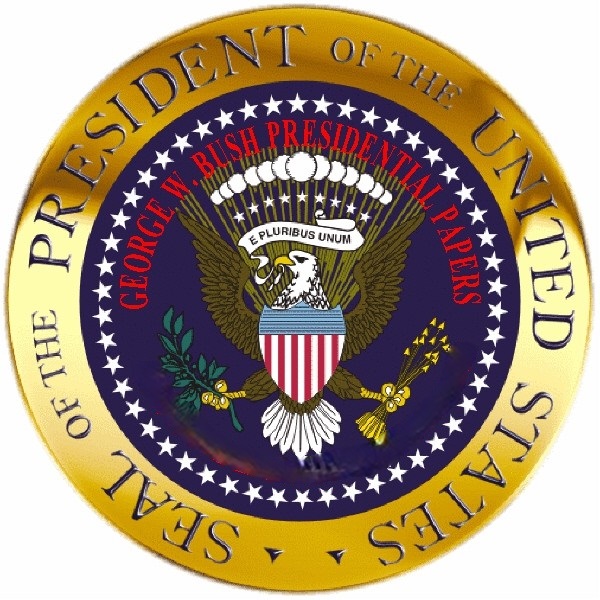
George W. Bush Presidential Papers – George W. Bush Administration Papers
$19.50
Description
George W. Bush Presidential Papers: An Overview
Timeline of Main Events (Based on Provided Source Description)
This timeline focuses on the events and periods covered by the George W. Bush Presidential Papers collection as described in the provided text. It primarily highlights the timeframe of the documents and major policy areas.
- 1968: George W. Bush graduates from Yale University. He also joins the Texas Air National Guard.
- 1975: George W. Bush receives a Master of Business Administration from Harvard Business School.
- 1988: George W. Bush works on his father’s presidential campaign.
- 1989: George W. Bush assembles a group of partners to purchase the Texas Rangers baseball franchise and serves as managing general partner.
- November 8, 1994: George W. Bush is elected the 46th Governor of the State of Texas.
- 1994 – 2000: George W. Bush serves as Governor of Texas for six years.
- 2000: George W. Bush’s military records are subject to a Freedom of Information Act request release. Tax returns for this year are also included in the collection. The 2000 Presidential election dispute occurs, leading to court documents and reports that are part of this collection.
- January 20, 2001: George W. Bush is sworn into office as the 43rd President of the United States. This marks the beginning of the primary period covered by the “White House Original Source Material” (until June 22, 2004) and the “Presidential Public Papers” (until August 16, 2004). Executive Orders also begin being issued from this period (January 29, 2001 to July 29, 2004).
- 2001: Allegations of damage caused by President Bill Clinton’s White House staff during the presidential transition are investigated by the Government Accountability Office (GAO). The Justice Department undertakes a project to interview aliens after the September 11th attacks, which is later reviewed by the GAO. Vice President Richard Cheney’s tax records begin in this year and continue until 2003.
- September 11, 2001: Terrorist attacks occur in the United States. This event significantly shapes the Bush administration’s policies, including national security, the application of international law to terrorist detainees, and military operations in Afghanistan. FEMA’s disaster assistance to New York City after the attacks is later examined by the GAO. The Joint Inquiry into the Terrorist Attacks of September 11, 2001 is conducted by Congress.
- Post-September 11, 2001: Issues such as National Security Policy, U.S. Policy in the Persian Gulf, the application of international law to terrorist detainees (including the Geneva Conventions and interrogation methods), and media access to military operations in Afghanistan become prominent topics within the White House.
- 2002: This year is highlighted as a key period for the development of the American and British government’s case for going to war against Iraq, with numerous documents from various government bodies included in the “Iraq War Prelude Documents.” Richard Cheney’s Energy Task Force’s National Energy Policy development process is reviewed by the GAO.
- 2003: The United States leads the invasion of Iraq. Following the invasion, the Office for Reconstruction and Humanitarian Assistance (ORHA) is established, later replaced by the Coalition Provisional Authority (CPA). The CPA operates until June 28, 2004, and its regulations, orders, memoranda, and public notices are a significant part of this collection. Tax records for President Bush and Vice President Cheney for this year are included.
- June 28, 2004: Civilian rule resumes in Iraq, marking the end of the Coalition Provisional Authority.
- June 22, 2004: The timeframe for the “White House Original Source Material” ends.
- July 29, 2004: The timeframe for the included Executive Orders ends.
- August 16, 2004: The timeframe for the included “Presidential Public Papers” ends.
- End of 2004: The George W. Bush Presidential Papers collection described in the source dates up to this point.
Ongoing Themes and Issues Throughout the Covered Period (2001-2004):
- Budget Issues, Tax Policy and Tax Cuts, Budget Surplus
- California Energy Crisis
- Climate Change Policy, Kyoto Protocol
- Corporate Governance
- Osama bin Laden
- Social Security Reform
- Economic Impact of War with Iraq
- Iraq Reconstruction
- Afghanistan Reconstruction
- The No Child Left Behind Act
- Development of the Department of Homeland Security Personnel System
Cast of Characters and Brief Bios
This list includes the principal individuals mentioned in the description of the George W. Bush Presidential Papers collection. Their roles and relevance are based solely on the information provided.
- George Walker Bush: The 43rd President of the United States (2001-2009). Born July 6, 1946. Former Governor of Texas (1995-2000). The collection comprises his presidential papers, military records, financial disclosures, and tax records.
- Richard Cheney: Vice President of the United States under President George W. Bush (2001-2009). His public financial disclosures and tax records (2001-2003) are included in the collection. He also headed the Energy Task Force.
- Donald Rumsfeld: Secretary of Defense during a significant portion of George W. Bush’s presidency. His correspondence is included in the “White House Original Source Material,” and he played a key role in the lead-up to and conduct of the Iraq War.
- John Ashcroft: Attorney General under President George W. Bush. His correspondence is included in the “White House Original Source Material,” and his public financial disclosures are part of the collection.
- Colin Powell: Secretary of State during President George W. Bush’s first term. His correspondence and public financial disclosures are included in the collection. He played a key role in presenting the case for war against Iraq to the international community.
- Andrew Card: White House Chief of Staff under President George W. Bush. His correspondence and public financial disclosures are included in the collection.
- Larry Lindsey: Served as Director of the National Economic Council under President George W. Bush. His correspondence is included in the “White House Original Source Material,” indicating involvement in economic policy.
- Christie Todd Whitman: Administrator of the Environmental Protection Agency (EPA) under President George W. Bush. Her correspondence and public financial disclosures are included.
- Paul O’Neill: Secretary of the Treasury during the early part of President George W. Bush’s administration. His correspondence and public financial disclosures are included.
- Alan Greenspan: Chairman of the Federal Reserve during President George W. Bush’s first term. His correspondence suggests involvement in discussions about budget issues and the economy.
- Alberto R. Gonzales: White House Counsel and later Attorney General under President George W. Bush. His correspondence is included, suggesting involvement in legal matters and national security policy.
- Condoleezza Rice: National Security Advisor during President George W. Bush’s first term, later becoming Secretary of State. Her correspondence and public financial disclosures are included.
- Karl Rove: Senior Advisor and Chief Political Strategist to President George W. Bush. His public financial disclosures are included, highlighting his prominent role in the administration.
- Spencer Abraham: Secretary of Energy under President George W. Bush. His public financial disclosures are included.
- Tommy Thompson: Secretary of Health and Human Services under President George W. Bush. His public financial disclosures are included.
- Gale Norton: Secretary of the Interior under President George W. Bush. Her public financial disclosures are included.
- Donald Evans: Secretary of Commerce under President George W. Bush. His public financial disclosures are included.
- Osama bin Laden: Leader of al-Qaeda, the terrorist organization responsible for the September 11, 2001 attacks. He is a subject of discussion within the White House documents related to national security.
- Tim Russert: Moderator of NBC’s “Meet the Press.” His inclusion as a subject indicates discussions within the White House on how to handle media appearances.
- Richard Clarke: Special Advisor to the President, headed the President’s Critical Infrastructure Protection Board. Authored “The National Strategy to Secure Cyberspace,” which is included in the government reports.
- Bill Clinton: 42nd President of the United States. Allegations of damage caused by his White House staff during the 2001 transition are mentioned in a GAO report.
George W. Bush Presidential Papers – George W. Bush Administration Papers
23,160 pages of President George Bush and Bush Administration and related papers dating from 1968 to the end of 2004.
Material released through Freedom of Information Act Request releases and public information releases. Composed of internal White House documents, Public financial disclosures of President Bush, Vice President Richard Cheney, and other members of the Bush Cabinet, George Bush military service records, Iraq Coalition Provisional Authority documents, George Bush and Richard Cheney tax records, 2000 Presidential election dispute court documents and reports, Government Accountability Office reports, Executive Orders issued by President George Bush, transcripts of President George W. Bush public papers, and government reports on issues related to the Bush Administration.
George Walker Bush, the 43rd President of the United States was born on July 6, 1946, in New Haven, Connecticut. He received a bachelor’s degree from Yale University in 1968. Bush joined the Texas Air National Guard in 1968. He received a Master of Business Administration from Harvard Business School in 1975. After working on his father’s 1988 presidential campaign, he assembled a group of partners, that purchased the Texas Rangers baseball franchise in 1989. Bush served as managing general partner of the Texas Rangers until he was elected the 46th Governor of the State of Texas, on November 8, 1994. Bush served for six years as governor. George W. Bush was sworn into office on January 20, 2001
Materials include:
WHITE HOUSE ORIGINAL SOURCE MATERIAL
775 pages of original sources material dating from January 20, 2001 to June 22, 2004. Comprised of memorandums, notes, email, and letters.
Correspondents include: Donald Rumsfeld, John Ashcroft, Colin Powell, Andrew Card, Larry Lindsey, Christie Todd Whitman, Paul O’Neill, Alan Greenspan, Alberto R. Gonzales, and Condoleezza Rice. Subjects include: National Security Policy Issues, U.S. Policy in the Persian Gulf, Budget Issues, Tax Policy and Tax Cuts, Budget Surplus, California Energy Crisis, Climate Change Policy, Kyoto Protocol, Corporate Governance, Osama bin Laden, Social Security Reform, How to Handle Tim Russert When Appearing on NBC’s “Meet the Press”, Application of International Law to Terrorist Detainees, Geneva Conventions, Economic Impact of War with Iraq, Interrogation Methods, and Media Access to Military Operations in Afghanistan and Iraq
IRAQ WAR PRELUDE DOCUMENTS
A 492-page collection of documents highlighting the development of the American and British government’s case for going to war against Iraq. Most documents are from the year 2002. They include documents from the Executive Office of the President United States State Department, Department of Defense, Central Intelligence Agency, British Foreign and Commonwealth Office and the British Prime Minister’s Office.
EXECUTIVE ORDERS
586 pages of copies of Executive Orders issued from January 29, 2001 to July 29, 2004. Executive orders are official documents of legally binding orders through which the President of the United States manages the operations of the Federal Government, as the head of the Executive Branch.
GEORGE W. BUSH MILITARY RECORDS
575 pages of George Bush Military Records, exhibiting 225 variant document pages. Material is from a Freedom of Information Act request release from the year 2000, a Freedom of Information Act request release from 2004, and a document packet release from the White House in 2004.
FINANCIAL DISCLOSURES
910 pages of George Bush and George Bush Administration public financial disclosure reports.
Executive Branch Personnel Public Financial Disclosure Reports are required by the United States Office of Government Ethics, the supervising ethics office for the executive branch. The forms include space to provide information about: Earned and Other Non-Investment Income, Property Interests and Assets, Honoraria, Earned and Other Non-investment Income, Investment Income, Dividends, Rents and Royalties, Interest, Capital Gains, Investment Fund Income, Trust Income, Other Investment Income, Gifts, Reimbursements, Travel Expenses, and Outside Positions
Included are disclosures from, President George Bush, Vice President Richard Cheney, Secretary of State Colin Powell, Secretary of the Department of Defense Donald Rumsfeld, Attorney General John Ashcroft, National Security Advisor Condoleezza Rice, George Bush’s Senior Advisor and Chief Political Strategist Karl Rove, Secretary of the Treasury Paul O’Neill, Chief of Staff Andrew Card Jr., Secretary of Energy Spencer Abraham, Secretary of Health and Human Services Tommy Thompson, Environmental Protection Agency Administrator Christine Whitman, Secretary of the Interior Gale Norton, and Secretary of Commere Donald Evans.
TAX RECORDS
76 pages of tax returns filled by President George W. Bush for tax years 2000 to 2003, and Vice President Richard Cheney, from 2001 to 2003.
IRAQ COALITION PROVISIONAL AUTHORITY DOCUMENTS
1,131 pages of Iraq Coalition Provisional Authority regulations, orders, memoranda, and public notices.
Following the 2003 invasion of Iraq, the Office for Reconstruction and Humanitarian Assistance (ORHA) was established by the United States Government and acted as a caretaker administration in Iraq. The Coalition Provisional Authority (CPA), replaced the ORHA and existed until civilian rule resumed on June 28, 2004.
CPA Regulations are instruments that define the institutions and authorities of the Coalition Provisional Authority (CPA). CPA Orders are binding instructions or directives to the Iraqi people that create penal consequences or have a direct bearing on the way Iraqis are regulated, including changes to Iraqi law. CPA Memoranda expand on Orders or Regulations by creating or adjusting procedures applicable to an Order or Regulation. CPA Public Notices communicate the intentions of the Administrator to the public and may require adherence to security measures that have no penal consequence or reinforces aspects of existing law that the CPA intends to enforce.
GOVERNMENT ACCOUNTABILITY OFFICE REPORTS
1,028 pages of Government Accountability Office reports dealing with subjects related to the Bush Administration. The U.S. Government Accountability Office (GAO) is an independent, nonpartisan agency that works for Congress. GAO is often called the “congressional watchdog” because it investigates how the federal government spends taxpayer dollars.
Subjects include: Defense Budget, Allegations of Damage Caused by President Bill Clinton’s White House Staff During the 2001 Presidential Transition, Department of Homeland Security Personnel System, The No Child Left Behind Act, Justice Department’s Project to Interview Aliens After September 11, 2001 Attacks, Process Used to Develop Richard Cheney’s Energy Task Force’s National Energy Policy, Federal Emergency Management Agency (FEMA) Disaster Assistance to New York City After Attacks of September 11th, Iraqi National Congress Support Foundation, Iraq’s Transitional Law, Afghanistan Reconstruction, and Iraq Reconstruction.
2000 PRESIDENTIAL ELECTION DISPUTE DOCUMENTS
297 pages of reports on the 2000 Election from the Department of Justice’s Commission on Civil Rights, The National Commission on Federal Election Reform, and the United States House of Representatives.
2,112 pages of court filings and transcripts from the U S Supreme Court, 11th Circuit U.S. Court of Appeals, Florida Supreme Court, and the Leon County Circuit Court.
GOVERNMENT REPORTS
2,990 pages of reports from within and outside the Bush Administration including: The: 9-11 Commission Report, Department of The Army – The Inspector General Detainee Operations Inspections, Congressional Research Service Report For Congress: “Continuity of Government: Current Federal Arrangements and the Future”, “The National Strategy to Secure Cyberspace” by The President’s Critical Infrastructure Protection Board, headed by Special Advisor to the President, Richard Clarke, a Defense Contract Audit Agency audit of a Haliburton Iraq Reconstruction Services Contract, the Joint Inquiry into the Terrorist Attacks of September 11, 2001 by the House Permanent Select Committee on Intelligence and the Senate Select Committee on Intelligence, and the Report on the U.S. Intelligence Community’s Prewar Intelligence Assessments on Iraq by the Select Committee on Intelligence United States Senate
PRESIDENTIAL PUBLIC PAPERS
9,299 pages of transcripts of White House public papers, dating from January 20, 2001 to August 16, 2004. The statements, messages, and other Presidential material released by the White House, as transcribed by staff members of the National Archives and Records Administration. The material includes Presidential proclamations, speeches, press conferences, communications to Congress and Federal agencies, statements regarding bill signings and vetoes, appointments, nominations, reorganization plans, resignations, retirements, acts approved by the President, nominations submitted to the Senate, White House announcements, and press releases.
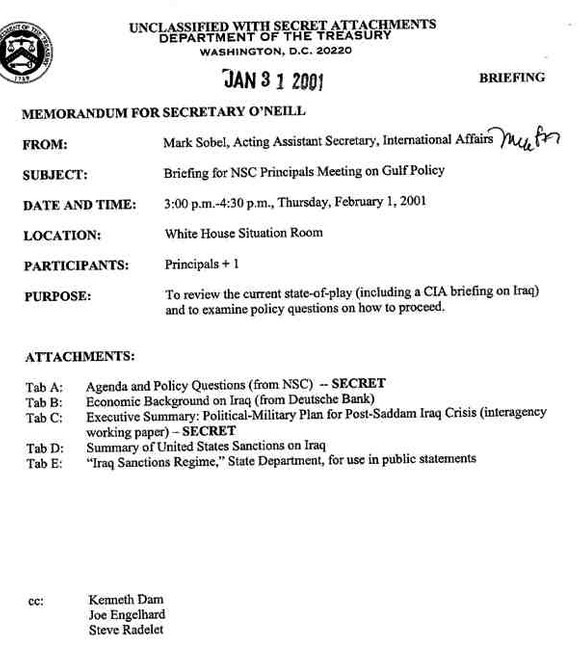
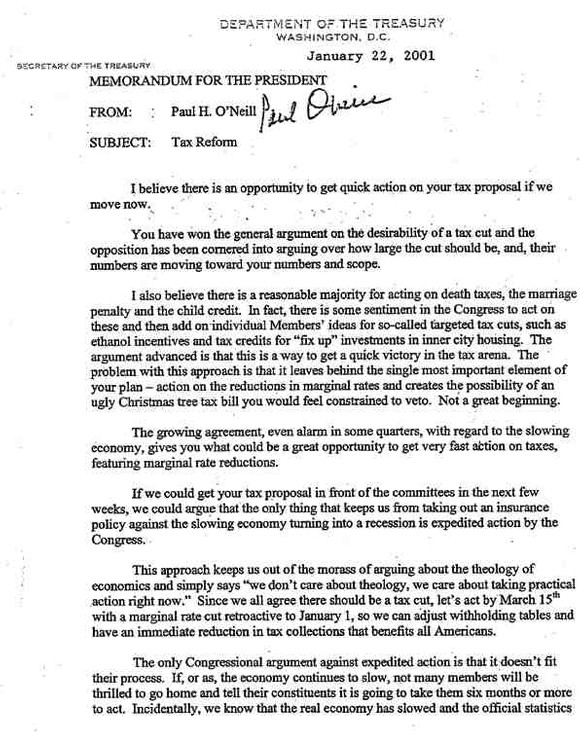
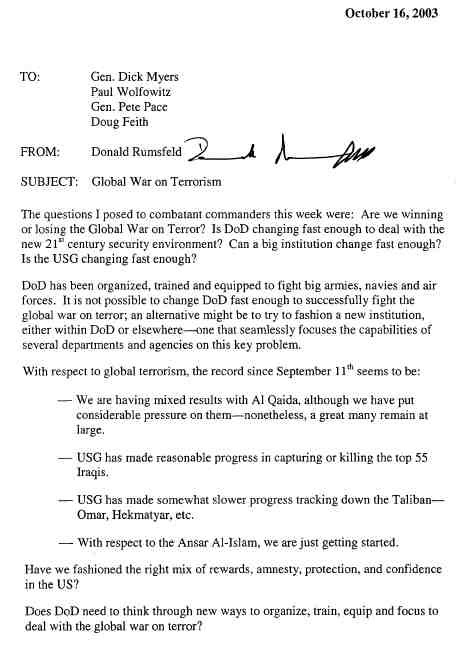
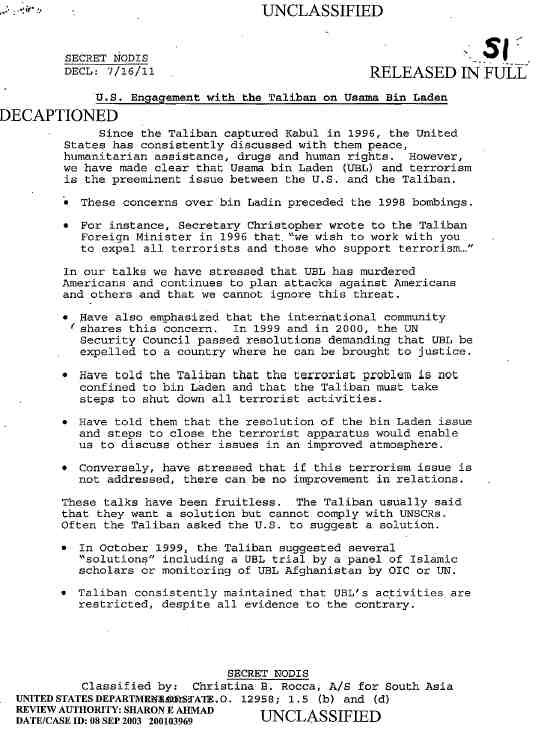
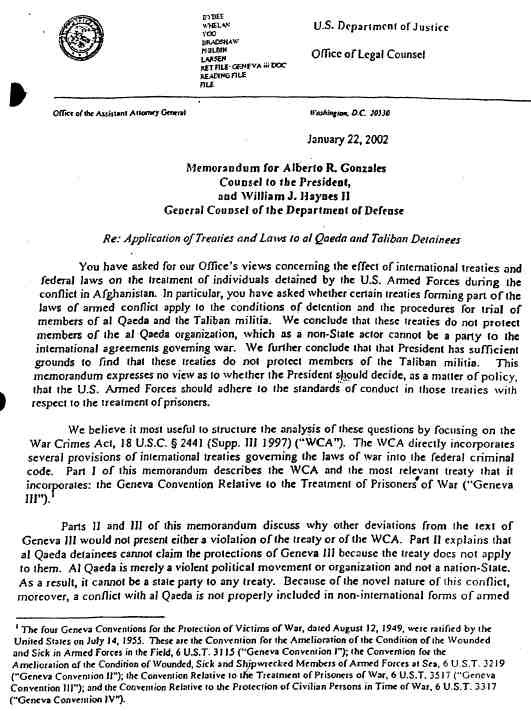
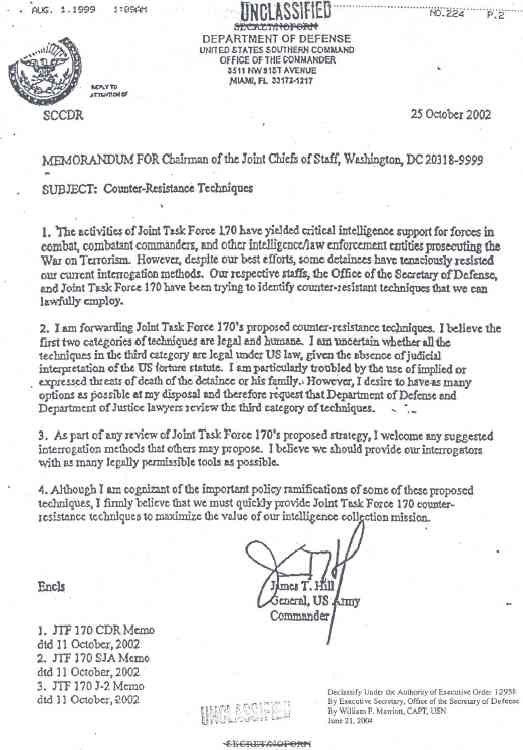
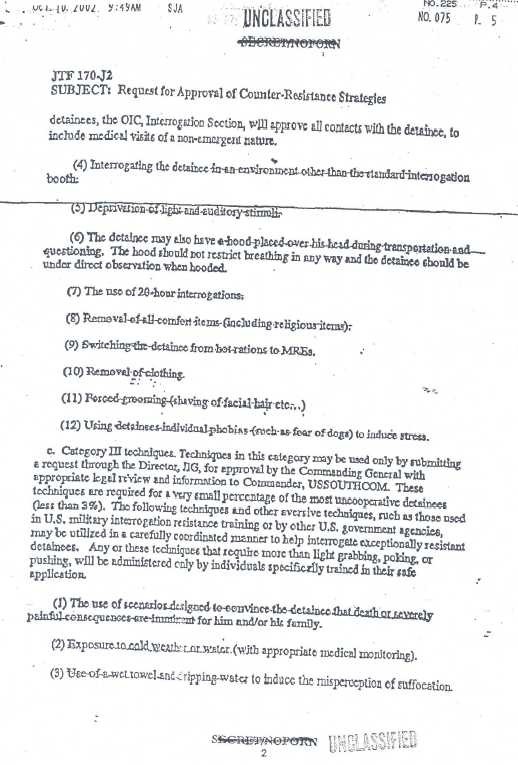

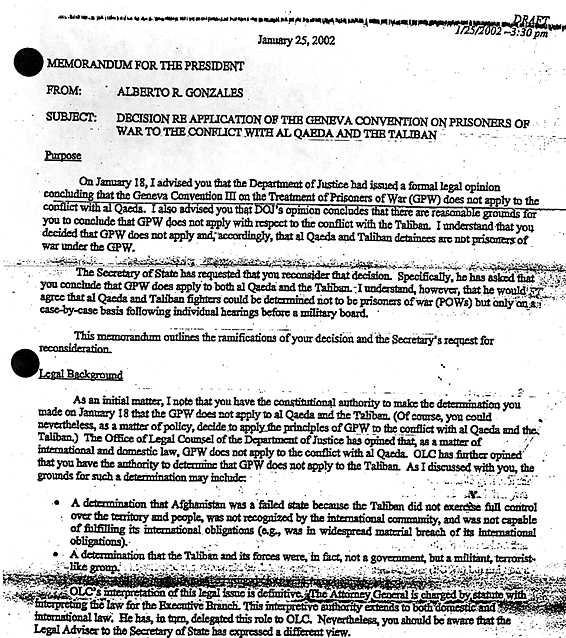
Related products
-
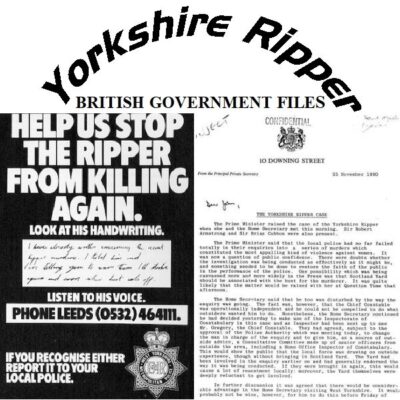
Yorkshire Ripper British Police Files
$19.50 Add to Cart -
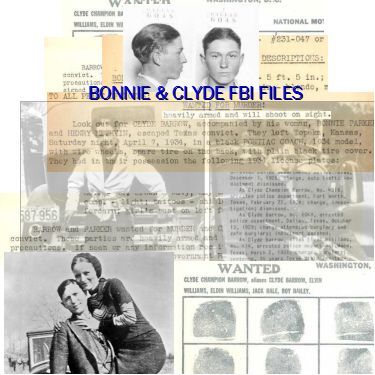
Bonnie & Clyde and the Barrow Gang FBI Files and Court Documents
$19.50 Add to Cart -
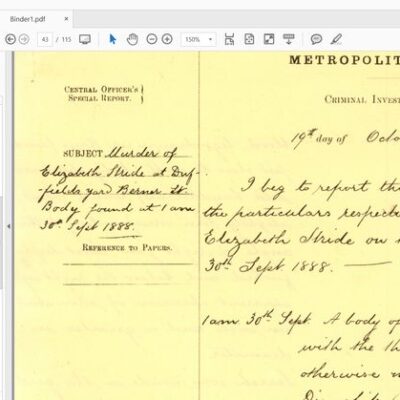
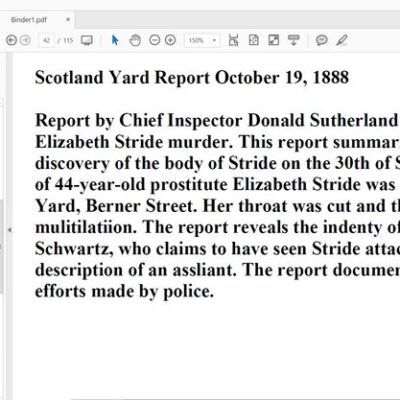
Jack the Ripper – Whitechapel Murders: London Police, Scotland Yard, and FBI Case Files
$19.50 Add to Cart -
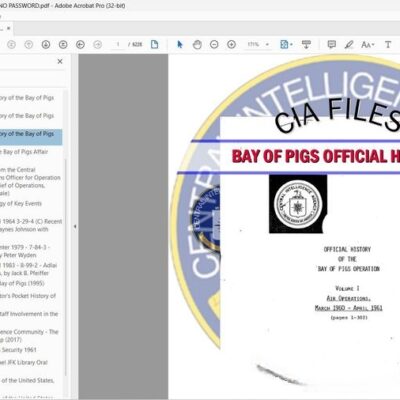
Bay of Pigs CIA Official History of the Bay of Pigs Operation
$19.50 Add to Cart